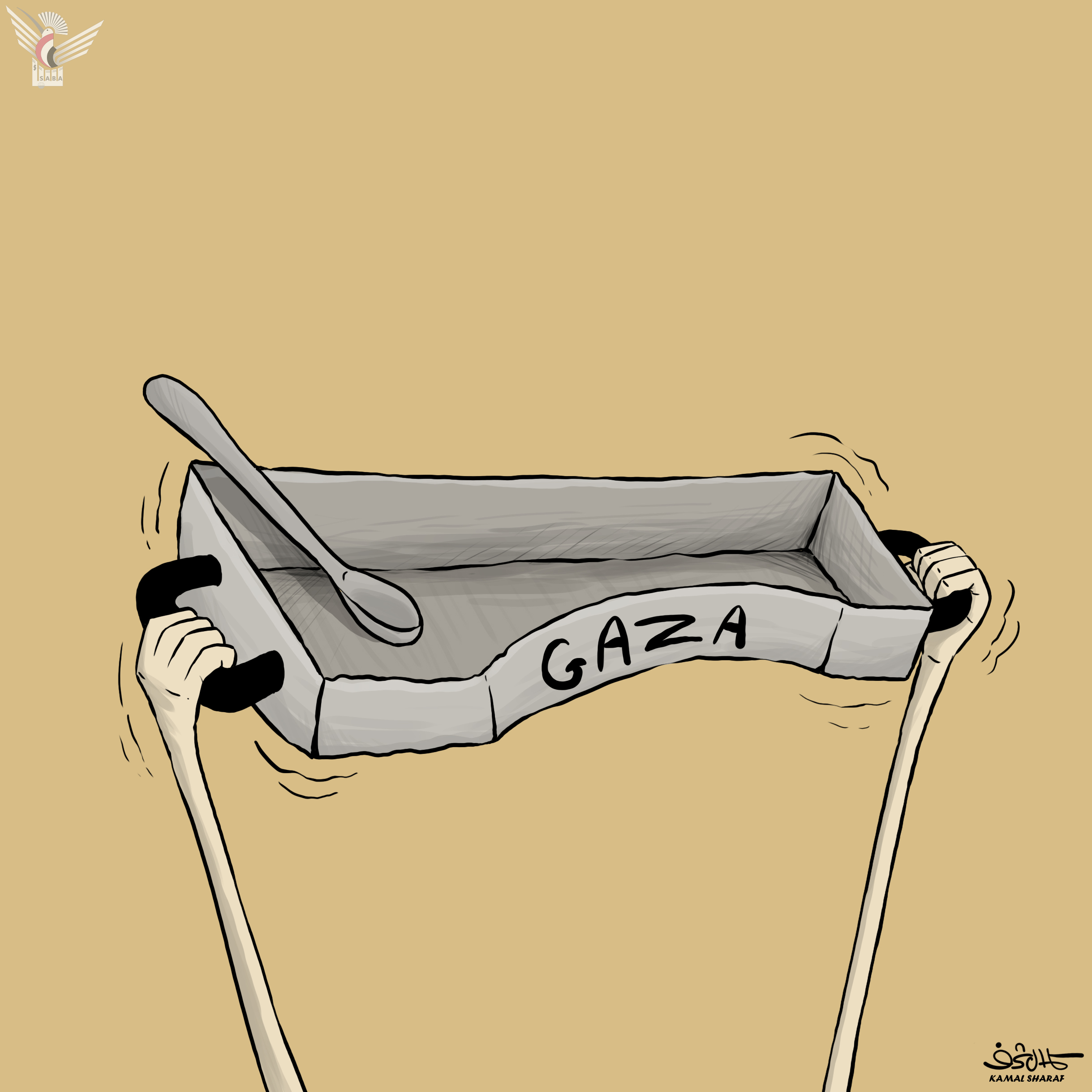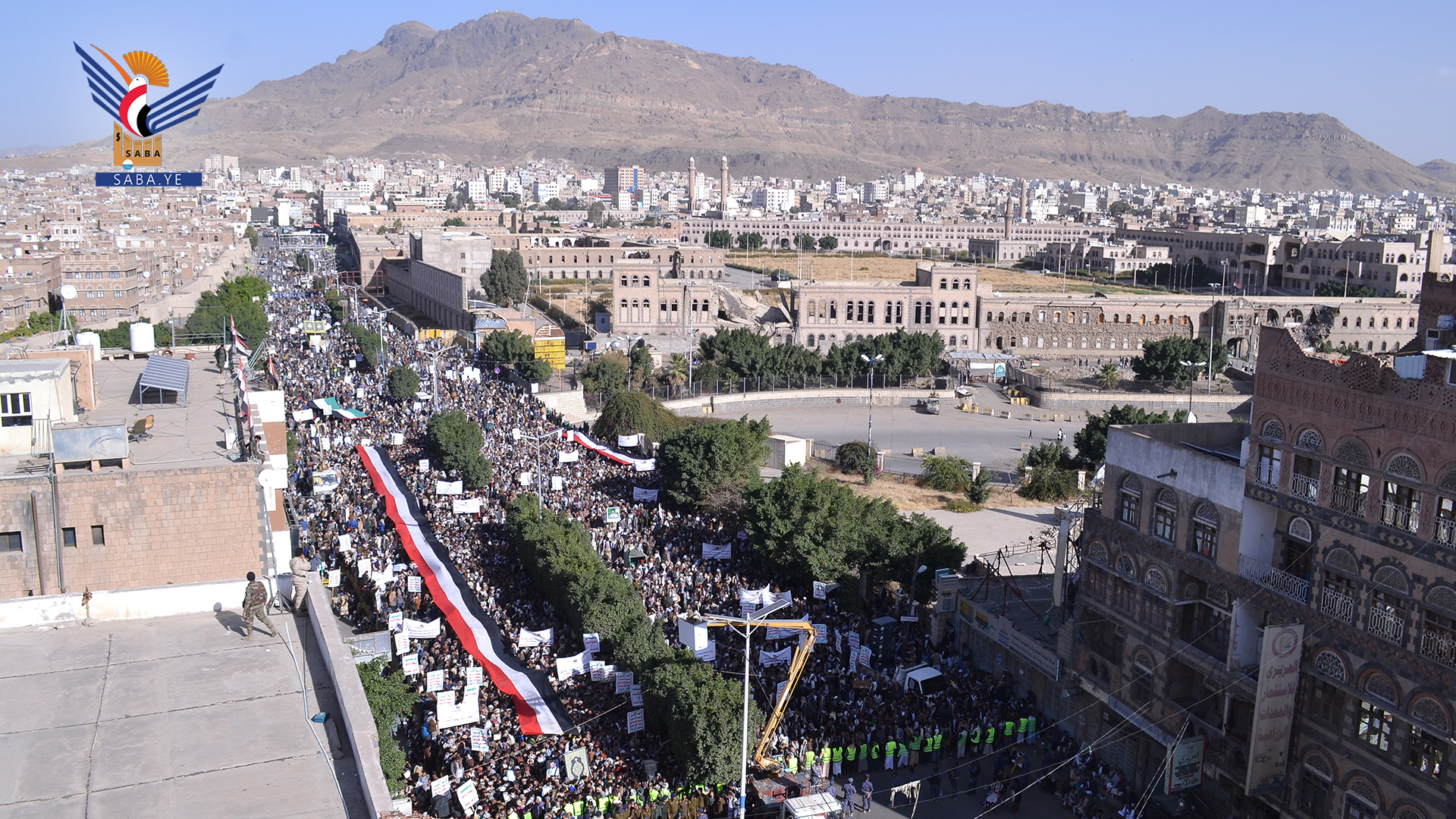SANA'A February 09. 2023 (Saba) - The campaign to boycott Swedish and Dutch products, after burning and tearing copies of the Holy Quran, met with great official and popular interaction in Yemen, in conjunction with reluctance in the rest of the Arab and Islamic countries.
National and religious call:
At the national level, the leader of the revolution, Sayyid Abdulmalik Badr al-Din al-Houthi, called during his speech on the occasion of the Friday Rajab holiday, to boycott Swedish and Dutch goods and products after the leader of the Danish far-right “hard line” party, Rasmus Paludan, on the twentieth of last January, burned a copy of the Noble Qur’an. In front of the Turkish embassy in the Swedish capital, Stockholm, amid tight police protection, and the leader of the anti-Islam “Pegida” movement in the Netherlands, Edwin Wagensveld, tore up another copy of the Holy Qur’an in front of the Parliament building in the capital, The Hague.
Sayyid. Abdul-Malik al-Houthi said: The burning of the Qur’an in Europe comes in the context of their war on human society and their endeavor to separate it from the Holy Qur’an and entrench hostility towards it and Islam. He considered that the spread of Islam in European and non-Muslim societies worried and disturbed the enemies of Islam and pushed them to burn and tear the Holy Qur’an.
On the political level:
Following the speech of the Leader of the Revolution, in late January, the National Salvation Government approved a set of economic measures to confront the hostile actions by the governments of Sweden, Denmark and the Netherlands, within the course of the economic boycott in the context of deterrent options for those hostile campaigns targeting the Holy Quran, Islam and Muslims.
The Sana'a government took decisions related to the economic boycott of American, Israeli, Swedish, Dutch and Danish goods, as a response to its violations of Islamic sanctities. The government has put in place a set of measures to ensure the validity of its economic boycott decisions through a strategy to bridge the commodity gap that the boycott may create for goods imported from countries that offend Islam and sanctities, and open the way for work on developing the necessary infrastructure to increase industrial and agricultural production and other steps related to this aspect.
And at the popular level:
The capital, Sana'a, and the rest of the free governorates witnessed large marches and vigils, in which millions of Yemenis who were zealous for religion and sanctities participated, denouncing the burning of the Noble Qur'an in the Swedish capital, amid tight security by the Swedish police, and also the tearing up of another copy of the Noble Qur'an in front of the Dutch Parliament. Participants in those marches criticized the Arab and Islamic negligence against what the Holy Qur’an is exposed to, and the offensive actions of the Messenger, may God bless him and grant him peace, in some European countries.
The boycott's economic losses:
There is no doubt that the economic boycott by Arab and Islamic countries will cost Sweden millions of dollars. According to the latest data published in World Trade, the trade balance between Yemen and Sweden reached about $22.5 million. Economic expert Salim Al-Ja'adabi explained in a statement to Al-Masirah.net that most of Yemen's imports from Sweden are construction wood, Swedish wood, decorations and furniture, in addition to locomotives such as the Volvo company.
Al-Ja'adabi pointed out that this is a direct import, not to mention the import called “Second hand”, which takes place from the Gulf countries, especially from Saudi Arabia and the Emirates, especially locomotives, in addition to the import of a group of cars. According to United Nations (Comtrade) data, the volume of trade exchange between Sweden and the Arab countries exceeds $4 billion annually, with Saudi Arabia occupying the first place, followed by the UAE, and then Qatar in the third place.
The volume of trade exchange between Saudi Arabia and Sweden, according to a report published by Al-Thawra Net, is about $1.33 billion, as Sweden ranks 85th in Saudi Arabia's exports to the countries of the world and the 24th in the Kingdom's imports from the world, according to data from the Swedish Ministry of Commerce for the year 2017.
While official Emirati data indicates that the volume of trade exchange between Abu Dhabi and Sweden amounts to $1.8 billion, and the value of UAE imports from Sweden is about $1.76 billion annually, while Emirati exports to them are estimated at about $5.5 million and re-exports are about $14.8 million, according to the same data. Published in 2017 AD.
The UAE is Sweden's second largest trading partner from the Gulf region after Saudi Arabia, followed by Qatar.
With regard to Qatar, data from the Swedish Ministry of Commerce published in 2022 AD stated that Swedish exports to the State of Qatar increased by $152.7 million in 2020 AD to about $305.4 million in 2021 AD.
The volume of trade exchange between Bahrain and Sweden amounted to 4 million US dollars annually, according to the Bahraini Central Information Agency for the year 2017.
Swedish products in the Middle East:
* Oriflame products, which is a group of companies specializing in the cosmetics industry, has many branches in Egypt and the Gulf countries.
* Electrolux products, a company specialized in the manufacture of various household appliances such as freezers, ovens, air conditioners, as well as small household appliances and others. The products of this company are also spread in the Gulf countries and Egypt.
* Ericsson products, a leading company in the field of information and communication technology, has customers in 180 countries around the world, including the Middle East.
* The products of Astrazeneca, a biopharmaceutical company, are active in more than 100 countries, including some countries in the Arab world.
* Scania products, a leading company in the field of land and sea transport. Especially the manufacture of trucks and marine engines, while its products are imported strongly by the Arab countries and the countries of the Middle East.
* Volvo products, which is a leading company in road transport, is specialized in manufacturing trucks, cars and buses, as well as construction machinery. As for its products, it is almost spread in most of the countries of the Middle East.
* The products of Tetra Pak Company, which is a company specialized in processing food, then packaging it, and its most important products are (dairy, drinks, cheese, vegetables, as well as animal food, etc.), while its exports exceeded 160 countries, including a large number of Arab countries.
E.M
resource : Saba

| more of (Reports) |




